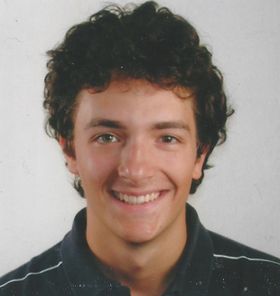
Andrea Luppi is co-first author of a new study which aims to get closer to understanding how the unconscious brain functions.
I cannot think of a more fascinating thing to study than how the mind arises out of matter.
Andrea Luppi
How can we measure consciousness? And what role does understanding how the unconscious brain functions play in improving surgery and treating disorders of consciousness?
A new study, on which Gates Cambridge Scholar Andrea Luppi and Thomas Varley are co-first authors, looks at how experts measure brain complexity, a key factor in addressing these questions.
Previous research has long debated whether complexity of the brain could be used to explain differences between the conscious and unconscious brain.
Complexity relates to two main dimensions: complexity in structure – the different regions of the brain perform different roles – and time – how brain activity evolves dynamically. Different fields of study
measure this complexity in different ways.
The new study, published in Scientific Reports, looks at whether there is something that unifies all these different approaches which can drive forward research into consciousness.
He and his team looked at seven different ways to measure brain complexity using propofol, one of the most common anaesthesia drugs, and MRI scans. A common way to understand consciousness is through anaesthesia as, unlike sleep, it can be controlled and, unlike consciousness disorders, it is reversible.
The researchers worked on two different datasets to ensure their findings were robust. They found that the seven measures were differently able to discriminate between levels of sedation, with those that focused on the temporal dimension showing higher sensitivity. The study also showed that all the measures were strongly related to a single underlying construct which explained most of the variance, which they say can measure “overall complexity” and could be used to predict the level of consciousness of a patient undergoing anaesthesia.
“We see a relationship between consciousness and complexity,” says Andrea [2019] who is doing a PhD in Clinical Neurosciences. “We think that anaesthesia induces loss of consciousness by reducing the complexity of the brain. It remains to be determined how this is happening, but we hope that our research might eventually help doctors measure a person’s level of consciousness better in surgery and better predict outcomes of disorders of consciousness.”
The new paper complements a previous one published late last year on similarities between disorders of consciousness and anaesthesia.
Andrea has been fascinated by consciousness since secondary school where he developed an interest in understanding the phenomena of dreams. He studied philosophy and psychology at undergraduate level and was increasingly drawn to neuroscience and the light it could shed on how the brain works and on unconsciousness. At Cambridge his laboratory studies consciousness from a range of different angles, which he believes is vital to bringing us closer to understanding how the brain works. He states: “I cannot think of a more fascinating thing to study than how the mind arises out of matter.”
*Picture credit of brain scan: Martin420. Courtesy of Wikimedia Commons.

Andrea Luppi
- Alumni
- Italy
- 2017 MPhil Medical Science at the Department of Clinical Neurosciences
2019 PhD Clinical Neurosciences - Christ's College
I grew up in a small town halfway between Milan and the Italian Alps, but I earned my BA degree in Psychology and Philosophy from the University of Oxford, followed by graduate work in cognitive science and neuroscience. I see myself and my work as trying to bridge the gap between mind and matter: building on my MPhil work at Cambridge, my PhD in Clinical Neurosciences will apply measures from network science and information theory to study the brain across multiple states of altered consciousness – such as sleep, anaesthesia and vegetative state. Ultimately, I would like to develop a unified understanding of how consciousness is lost, and how we can promote its recovery in patients. I am also committed to communicating what we know about the brain and the mind, both across disciplines and to the wider public - especially when such knowledge is relevant for mental health. These issues are still surrounded by misunderstanding and stigma, and I believe that accessible knowledge is the best antidote. I also feel that providing this is one of my responsibilities as a scientist: as part of humanity’s quest to gain a more accurate understanding of ourselves and the world we live in, science should not be confined to the lab, and neither should our passion as scholars. I am very excited to be re-joining the community of Gates Scholars at Cambridge: I hope that this incredible experience will allow us to draw inspiration from each other’s work, passion, and perspectives.
Previous Education
University of Cambridge Clinical Neuroscience 2018
Oxford University Neuroscience 2017












